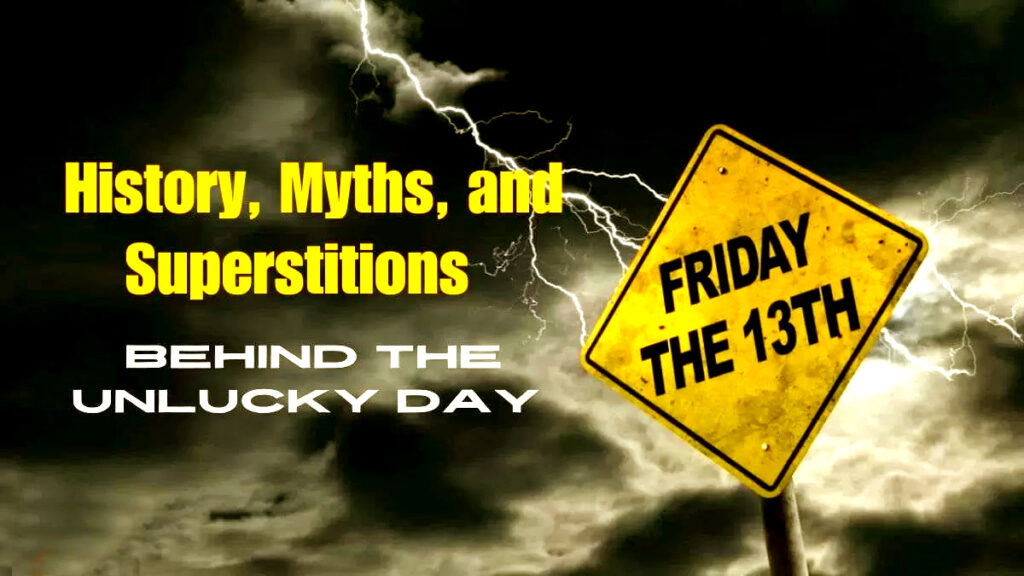
For centuries, the date Friday the 13th has been shrouded in mystery and superstition, widely regarded as an omen of bad luck. Its notoriety transcends cultures and generations, influencing everything from pop culture to personal behavior. But why does this date hold such a reputation, and how did it come to be associated with misfortune?
The Historical and Religious Roots
The superstition surrounding Friday the 13th is believed to be a confluence of two separate fears: the number 13 and the day Friday. Both have long been considered unlucky in various traditions.
The number 13’s reputation for misfortune dates back to ancient times. In numerology, 12 is considered a “complete” number—there are 12 months in a year, 12 zodiac signs, and 12 apostles of Jesus. Adding one more disrupts this sense of balance and harmony, giving 13 a sense of irregularity and foreboding.
Friday, on the other hand, has its own dark connotations. In Christianity, Good Friday commemorates the crucifixion of Jesus, a tragic event. Some believe that Friday was also the day Eve offered the forbidden fruit to Adam and the day Cain killed Abel. These associations have contributed to the day’s negative reputation.
Additionally, there are several traditions and stories that reinforce the superstition. One such example is the Last Supper, where 13 guests dined together before Jesus was crucified the following day, which was a Friday. This combination of the number 13 and Friday cemented their joint reputation for misfortune in Christian lore.
The superstition also finds echoes in Norse mythology. According to one tale, Loki, the mischievous god, disrupted a feast of 12 gods, making him the 13th attendee. His interference led to chaos and the death of Balder, the beloved god of light and joy. As Christobel Hastings from CNN notes, Loki tricked the blind god Hodr into killing his brother Balder with a mistletoe-tipped arrow, an act that plunged the world into mourning.
When these elements combine, as they do on Friday the 13th, the result is a date loaded with ominous significance.
Cultural Amplification
The modern fear of Friday the 13th, known as “paraskevidekatriaphobia,” owes much to popular culture. One pivotal moment in its rise was the publication of Thomas W. Lawson’s 1907 novel Friday, the Thirteenth, which depicted a stockbroker exploiting superstition to cause chaos on Wall Street. This book helped cement the idea of the date as a harbinger of misfortune.
In the 20th century, the superstition gained further notoriety through Hollywood. The Friday the 13th horror film franchise, which began in 1980, transformed the date into a symbol of terror and calamity. Its masked antagonist, Jason Voorhees, turned Friday the 13th into a nightmarish cultural phenomenon, perpetuating the fear for new generations.
Real-Life Impacts
Believing that Friday the 13th is unlucky is not merely a harmless superstition; it has practical applications. According to studies, some people steer clear of important tasks on this day, such getting married, traveling, or making financial decisions. This pervasive fear may result in quantifiable financial losses. Businesses in the United States lose up to $800 million every Friday the 13th as a result of shifting consumer behavior, according to the Stress Management Center and Phobia Institute.
Embracing the Superstition
For some, Friday the 13th is an opportunity to lean into superstition with a sense of humor or curiosity. Many horror movie enthusiasts celebrate it as a mini-Halloween, while others take it as a reminder of humanity’s fascinating relationship with fear and belief.
Ultimately, Friday the 13th is a blend of history, culture, and human psychology. Whether you dread it or dismiss it, the date continues to captivate and intrigue, making its mark on our collective consciousness.
